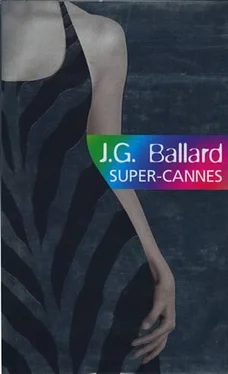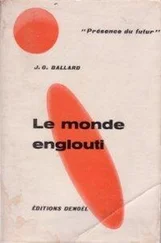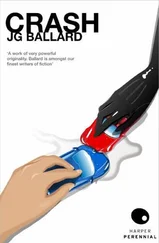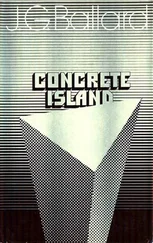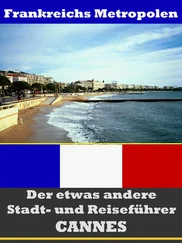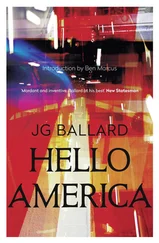J.G. Ballard - Super-Cannes
Здесь есть возможность читать онлайн «J.G. Ballard - Super-Cannes» — ознакомительный отрывок электронной книги совершенно бесплатно, а после прочтения отрывка купить полную версию. В некоторых случаях можно слушать аудио, скачать через торрент в формате fb2 и присутствует краткое содержание. Жанр: Современная проза, на английском языке. Описание произведения, (предисловие) а так же отзывы посетителей доступны на портале библиотеки ЛибКат.
- Название:Super-Cannes
- Автор:
- Жанр:
- Год:неизвестен
- ISBN:нет данных
- Рейтинг книги:5 / 5. Голосов: 1
-
Избранное:Добавить в избранное
- Отзывы:
-
Ваша оценка:
Super-Cannes: краткое содержание, описание и аннотация
Предлагаем к чтению аннотацию, описание, краткое содержание или предисловие (зависит от того, что написал сам автор книги «Super-Cannes»). Если вы не нашли необходимую информацию о книге — напишите в комментариях, мы постараемся отыскать её.
'Sublime: an elegant, elaborate trap of a novel, which reads as a companion piece to Cocaine Nights but takes ideas from that novel and runs further. The first essential novel of the 21st century.'
– Nicholas Royle, Independent
'Possibly his greatest book. Super-Cannes is both a novel of ideas and a compelling thriller that will keep you turning the pages to the shocking denouement. Only Ballard could have produced it.'
– Simon Hinde, Sunday Express
'In this tautly paced thriller he brilliantly details how man's darker side derails a vast experiment in living, and shows the dangers of a near-future in which going mad is the only way of staying sane.'
– Charlotte Mosley, Daily Mail
'Vintage Ballard, a gripping blend of stylised thriller and fantastic imaginings.'
– Alex Clark, Guardian
'Ballard at his best. Truly superb: the best book he has written. The story achieves the optimum balance of perfectly wrought lucid thriller-writing with formidable and pervasive intelligence.'
– Edward Docx, Daily Express
'Like watching a slow-motion action replay of a spectacular collision, you can't take your eyes away from Super-Cannes.'
– Mike Pattenden, The Times
'Super-Cannes is one of those novels whose last 100 pages you turn over faster and faster, wanting hundreds more: One peels this novel like an onion. Halfway through, I thought I could see the denouement. Three-quarters of the way through, something quite different seemed to be looming up. I have to say that the ending eluded and amazed me. As Ballard always amazes.'
– John Sutherland, Sunday Times
'Ballard's extraordinary new novel reads like a survival manual for the new century: There is a peculiar Englishness that manifests itself in exploration of the exotic, and J. G. Ballard is the most exotic author of all. Super-Cannes is a gleaming, tooled-up taste of tomorrow, beguiling, subversive and so appropriate to the mood of the new century that it feels like a survival handbook; it might just save your life.'
– Christopher Fowler, Independent on Sunday
'A magical hybrid that belongs to no known genre, a masterpiece of the surrealist imagination, Super-Cannes is another triumph by Britain 's most uncompromisingly contemporary novelist.'
John Gray, New Statesman
'J. G. Ballard is the Dr Moreau of British fiction, creator of controlled environments and out-of-control dystopias: More than any other writer Ballard understands the transformation technology may effect on human desire. This is his most potent statement yet of the outcome of that transformation, an elegant nightmare with all the internal coherence of an Escher engraving or a Calvino fable: Ballard unravels the secrets of his post-industrial Elysium with panache, leading us into a society which is both an exaggerated parable for our times and a chill piece of futurology: compelling.'
– Tim Adams, Observer
'With this sharply focused novel, Ballard takes a long sniper's look at the mirror-walled corporate dream, and then shatters it.'
– Helen Brown, Daily Telegraph
'Ballard remains that very rare thing, an original. He is undoubtedly the most exciting of contemporary novelists.
His genius lies in the mood he creates and his often dazzlingly surreal images. Super-Cannes possesses a relentless energy and an atmosphere of calculated corruption: the chilling narrative succeeds as an apocalyptic comment on modern society's inhuman dance of death.'
– Eileen Battersby, Irish Times
'Tainted idylls have always been J. G. Ballard's fictional speciality. With Super-Cannes, he dreams up one of his most memorable. Electrifyingly vivid prose and a storyline alive with shocks power a novel that casts lurid light on an exclusive Riviera enclave of the technological ©lite.'
– Peter Kemp, Sunday Times
'For those who know his work, the familiar pleasures are all present: fecund ideas, the disquieting poetry of his imagery and a strong spine of narrative. For first-timers, the ride begins here. Much writing is touted as essential; little, however, can claim any such distillation of its times. Ballard's is the real thing.'
– Gareth Evans, Time Out
'A dark and incendiary thriller, doing to the gated community and business park what Bram Stoker did for the Transylvanian castle.'
– S. B. Kelly, Scotland on Sunday
'He continues to produce the most trenchant and effective critique of the era and remains the most important contemporary British writer.' Will Self, Independent 'The storyline of intrigue and manipulation sees Ballard's devious imagination on tiptop form. Pacy, intelligent and accessible – one of his most enjoyable books ever, a pageturner that is also a novel of ideas.'
– David Profumo, Literary Review
'One of our strangest and most brilliant novelists. A new novel from Ballard is a literary event to make the heart jolt with uneasy expectation. Super-Cannes, super-saturated with Ballard iconography, is one of the first novels to gaze unflinchingly at the new millennium.'
– Catherine Lockerbie, Scotsman
'Super-Cannes is prime Ballard – weighty, potent and extraordinary.'
– John Preston, Evening Standard
'Ballard just gets hipper and hipper.'
– Guardian
